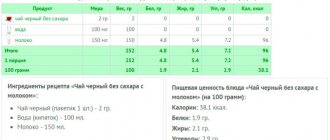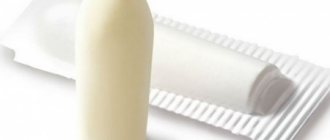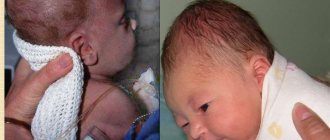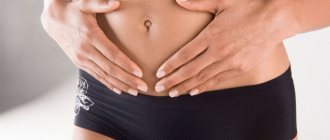Strict diet
A very versatile concept of diet for women during lactation. But, in essence, the diet should consist of high-quality prepared food, meals should be taken regularly and in small portions.
In some Western countries, the menu of nursing mothers can include almost everything, with the exception of foods that cause allergies and gas in the child. For example, in England it is quite acceptable to find baked goods with chocolate and citrus juice in a maternity hospital.
In the former states of the USSR, the diet of nursing mothers is more demanding, with a special attitude towards the first days. But modern medicine is expanding the list of acceptable products, increasingly removing restrictions on women’s menus.
Due to obvious contradictions, you should familiarize yourself with the most popular myths related to nutrition rules.
Intestines after childbirth
31.03. After childbirth Throughout pregnancy, a woman is exhausted by problems associated with the functioning of the gastrointestinal tract; the intestines work poorly, since the enlarging uterus interferes with its normal functioning. The intestines after childbirth also cause a lot of problems for a young mother. There is no longer any pressure from the uterus on him, functions should be restored, but for some reason constipation is observed more regularly than before.
This happens because pregnancy reduces intestinal motility, the abdominal muscles are weakened by childbirth, and inactivity adds its own causes. If there were tears or stitches during childbirth, a psychological problem is added - the woman may feel that the stitches may come apart from tension.
Constipation is characterized by the following symptoms:
- Delayed bowel movement for more than two days;
- Cramps, bloating, general discomfort from the gastrointestinal tract;
- Defecation in small doses, accompanied by pain;
- General weakness of the body with headaches and bad breath;
- Irritability, sleep disturbances and signs of intoxication.
All of the listed signs are characteristic at the first stage and this is only a small part of what constipation can lead to in the future. In any case, treatment should begin as soon as possible. And to do this, you need to identify the factors that caused constipation.
Defecation after childbirth can be difficult due to the following factors:
- Weakness of the abdominal muscles;
- Physiological feature of the uterus: after childbirth it is still heavy, up to 1 kg, and pressure and intestinal displacement occur;
- Difficult birth with stitches;
- Damage to the intestines during childbirth, leading to disturbances in its activity;
- Lack of normal conditions for defecation, suppression of the urge to defecate, leading to a psychological block.
- Taking antibiotics suppresses the production of beneficial microflora.
- Psycho-emotional state;
- Violations of the regime and diet.
How to improve bowel function after childbirth?
First of all, if there is this problem, a woman should calm down and let go of the psychological blockage that causes constipation. Nervousness only harms the restoration of body functions.
Eat foods rich in fiber: fruits, vegetables, cereals, grain bread and bran loaf. Prunes, raisins and other dried fruits perfectly stimulate stool. Avoid chocolate; in addition to constipation, it can cause allergic rashes in a breastfeeding baby.
Drinking fluids in the form of juices, fruit drinks, compotes, decoctions and water will help replenish fluid, facilitate bowel movements, and also improve milk production by the mammary glands. Excess fluid can cause excessive milk supply, so the problem of constipation must be solved even before lactation is established, and if milk is still produced in excess, then the fluid will still need to be limited and the problem solved by other methods.
Movement activity stimulates intestinal activity. Even leisurely walks along the hospital corridor can help you with this. Walk with your knees bent high, then bend slightly to the sides if your condition allows.
If you have to lie in bed, do Kegel exercises, which will help restore the pelvic floor muscles and help establish normal bowel movements.
Excessive tension during defecation will only lead to divergence of the seams and the appearance of bleeding cracks in the anus. Hemorrhoids can be anesthetized locally with suppositories prescribed by a doctor. Cold compresses will also help. The pain will disappear as soon as the process of bowel movement is regulated.
Myths
To produce a large amount of milk, you should eat a lot. Definitely a wrong opinion. Eating is necessary to satisfy physical needs, but this will not affect the increase in lactation.
Milk is secreted under the influence of the hormones prolactin and oxytocin. And the lack of vitamins that did not enter the child’s body with food will be taken from the mother’s body. By the way, women’s extra postpartum kilograms are easily spent with feeding, because it is considered physical activity.
Before feeding your baby, you should drink a glass of warm liquid. Of course, the need to drink increases during lactation. Drinking warm water releases oxytocin and gives you a rush. But there is no need to drink every time. The body will tell you better about its needs, you just need to listen to it.
To improve the quality of milk, you should consume more dairy products. Again, a mistake, because there is no connection between milk and lactation abilities. And fermented milk products, although they also have no effect on lactation, will simply be very useful for the mother.
If you eat garlic and onions, your baby will reject the breast. Of course, these vegetables can add flavors to breast milk, but this does not give a clear answer that the baby will not like it. You just have to know when to stop.
There are many myths about the lactation period, you shouldn’t believe every one. You just need to find out the essence of the issue by familiarizing yourself with the nutrition rules and turn on logic.
Colic during artificial and mixed feeding
There is often an opinion among mothers that colic necessarily plagues formula-fed (IV) babies, but this is not always the case. These phenomena are observed both in breastfed and formula-fed children, since the main reason for their occurrence is not the type of nutrition, but the maturation of the child’s digestive system and disorders of its nervous regulation. However, not all pediatricians agree with this version and believe that colic can also appear for other reasons.
Important! The type of food a newborn is fed does not affect the occurrence of colic, which can occur both on artificial and breastfeeding.
It’s another matter if we are talking about differences in the frequency of their occurrence and intensity. Breast milk, as a natural product intended by nature itself to nourish a baby, is best suited for him, and if it is replaced with a formula, especially in the first months of life, then the likelihood of colic becoming greater.
Other reasons include using bottles with the wrong nipple. In pharmacies you can find regular and orthodontic nipples. The latest models are shaped very similar to a woman's nipple. During feeding, the baby swallows a minimum of air along with the milk. It is also worth paying attention to models with an anti-vacuum system. It prevents the nipple from sticking together during feeding. Read more about anti-colic bottles here.
The baby's body may also not accept a certain brand of formula. In this case, you need to try giving a product from another manufacturer and monitor the reaction of the child’s body.
On sale, along with regular baby food formulas, there are formulas with a composition specially developed for colic for newborns, containing probiotics or prebiotics. Depending on the cause of colic, we can recommend different formulas for bottle-fed or mixed-fed children.
- For children whose colic is caused by decreased intestinal motility, leading to stagnation of gases and constipation, it is better to use anti-reflux mixtures with carob bean gum, which will promote bowel movements.
- For children with lactase deficiency, low-lactose mixtures are used.
- Formulas with a high degree of hydrolysis of milk proteins are usually given for intolerance to cow's milk proteins.
- It is also important to pay attention to the composition of the mixture. It has long been noted that formulas containing palm oil are much more likely to cause colic and constipation in newborns, so it is best to choose formulas without palm oil.
Improper introduction of complementary foods can result in colic. Pediatricians recommend introducing the first complementary foods no earlier than 6 months. By this time, the digestive system adapts to nutritional conditions. Do not start complementary feeding with gas-forming foods (apples). Pediatricians recommend starting complementary feeding with vegetable puree. If you follow medical recommendations, flatulence rarely occurs.
If colic occurs in a newborn, in addition to anti-colic medications, the following can help you:
- tummy massage;
- gas outlet tube;
- warmer;
- dill water or Plantex;
- mixtures for constipation and colic;
- anti-colic bottles;
- folk remedies.
The first months of a baby's life are almost always accompanied by colic. After birth, the child’s digestive system continues to develop, enzymes are formed, and the intestinal walls are not yet able to contract actively enough. Imperfect functioning of the gastrointestinal tract leads to colic. At this moment, the baby gets worried, begins to cry a lot, kicks his legs, trying to press them to his stomach. Some babies react more calmly and fall asleep poorly, but a young mother who is breastfeeding is worried about why this is happening, perhaps there is something wrong with her milk and she needs to adjust her diet?
Natural feeding is good for a child's health. With mother's milk, he receives all the necessary substances, he develops immunity, so do not rush to switch to baby food at the first difficulties:
- Firstly, this period will soon pass.
- Secondly, it’s worth understanding the issue in more detail; most likely, it’s not difficult to deal with the problem.
Breastfeeding is a rather difficult period for a woman, since she has to carefully monitor her diet and limit herself in many ways so that there are no difficulties with the baby’s tummy. Children react to different foods individually, but there is a list of foods that are undesirable to consume during breastfeeding due to increased gas production in children.
But it’s not always about the products; there are several reasons that can cause anxiety and colic in a child.
Incorrect feeding regimen
The composition of milk changes constantly; during feeding, its fat content increases gradually, towards the end it reaches maximum levels. If the mother allows the baby to suck on both breasts without allowing the first to be emptied completely, the fat content of the milk is still insufficient. The baby will receive less fat per feeding, therefore, the number of calories needed will be reduced. The feeling of hunger will come earlier, he will ask for food, and overeating will end with regurgitation.
In this case, lactose enters the intestines in large volumes; there is not yet enough enzyme to digest such an amount of sugars. The baby develops colic and symptoms of lactose intolerance appear:
- gas formation appears;
- pain;
- stool becomes liquid;
- foams;
- takes on a greenish tint.
Sometimes signs appear already during feeding. This should not be mistaken for lactose intolerance. These phenomena are completely different and there is no need to rush to transfer your child to a lactose-free formula. You need to regulate the feeding process, then everything will return to normal:
- You should not strive to feed your child strictly according to the clock; the baby should receive food on demand, then there will be fewer problems.
- Let your baby nurse until there is milk in the breast, or until he falls asleep and lets go of the nipple.
- You need to make sure that he does not suckle on an empty breast. When there is little milk left, you need to massage the breast with your other hand to drive milk from the ducts to the nipple.
- The baby is applied to the other breast if the first one is empty and he has not had enough to eat.
- At the next feeding, it is applied to the other breast, performing the same actions.
- Sometimes it is recommended to feed one breast two or three times; if there is a lot of milk in the second breast, you can express it.
The chest will soon adapt to this rhythm, the irritation will disappear, and the problems will go away.
Katya, 22 years old: I fed my son every 2 hours, he constantly cried and tucked his legs. We switched to feeding on demand, breastfeeding, as soon as he cried, he became much calmer, his tummy practically does not bother him.
Sometimes when breastfeeding, the flow of milk from the nipple is too strong, the baby feels uncomfortable sucking, and during feeding he begins to get nervous. The baby's behavior also resembles colic. Soon after the start of feeding, he begins to turn his head, cry, and turn away from the breast. If you apply it again, history repeats itself.
It happens that the nipple is too tight, the milk flows slowly, and the baby doesn’t like this either. So he gets tired quickly, and may even refuse to breastfeed. What to do in this situation:
- Try to feed the baby according to his demand, but when he is not too hungry: if the baby begins to suck greedily, the milk will begin to flow intensively.
- You shouldn't give him water to curb his appetite.
- If the breast is full, the milk flows in a copious stream, you just need to express the excess before feeding.
- You can reduce the force of the flow by changing your feeding position. For example, lie on your side or on your back; this position will prevent milk from flowing out too quickly.
- For those mothers whose milk flow is weak, massage helps.
- Using a breast pump will help develop the nipple and increase milk flow.
- There should be no irritating factors during feeding: the TV and radio should be turned off at this moment.
If you apply the baby to the breast correctly, the success of feeding is guaranteed, so do not rush to give formula; when he does not want to latch on to the breast, you can try feeding him with expressed milk.
Nutrition rules
There are standard parameters for food consumed, and once you become familiar with them, the need to study each product will disappear.
Food should be nutritious. Some nursing mothers go on a diet wanting to lose weight and quickly get back into their previous physical shape, eating only low-calorie foods. The daily calorie intake is approximately 3000. And this is not a necessity for the baby, it is required to replenish the mother’s physical strength.
Complete nutrition. Every day the menu should include foods containing proteins, fats and carbohydrates. And we must not forget about fresh vegetables, which are so rich in vitamins.
Regulate water balance. Water is necessary for the normal functioning of the body. The liquid starts metabolism and is the main component of milk. The recommended amount to drink should be 2 liters per day.
Fractional meals. You should eat about five times a day.
Harmlessness of food. You need to limit yourself in consuming allergenic foods. The first month is necessary to regulate lactation and for the baby to gain weight. After a while, you can introduce new products with caution.
Correct heat treatment of products. It is recommended to boil and bake food.
When consuming raw vegetables and fruits, careful washing is required. For the first six months, exclude smoked, salted, pickled and spicy dishes from the menu.
Proper nutrition for mothers has only advantages. After all, bad habits go away, and good ones develop.
How to restore the intestines after childbirth?
For a speedy postpartum recovery, you need to properly plan your diet. A new mother should eat light, low-fat foods, broths, fresh fruits and vegetables, whole grain cereals, and include fermented milk products in her daily menu. But any food must be eaten, taking into account the fact of breastfeeding, since the baby’s body may react negatively to some dishes and supplements.
It is necessary to maintain water balance in order to establish intestinal motility. You should drink at least a liter of ordinary still water per day. Carbonation of the liquid can lead to additional flatulence. In addition, it is recommended to consume homemade compotes, jelly, fruit drinks and juices.
Despite possible weakness and pain, a woman should regularly walk in the fresh air. Sitting for a long time is contraindicated. You need to perform light exercises designed specifically for women in labor: bending over, lifting your legs. Self-massage of the abdomen using circular movements in a clockwise direction also helps, which should be performed not only when health problems arise.
Sufficient consumption of fiber has a beneficial effect on the intestines and eliminates malfunctions. It is rich in fresh fruits, vegetables and grains. Beets, prunes, raisins, plums contribute to timely emptying. To eliminate dysbiosis, you should regularly consume fermented milk products and consult a doctor.
If bowel function does not improve over time, it will not be possible to avoid taking medications. For nursing mothers, medications containing lactulose, for example, Duphalac, are suitable as a remedy for constipation. It can also be taken to prevent intestinal disorders. Glycerin suppositories, which are absolutely harmless and act symptomatically, are also popular.
Linex is well suited to eliminate diarrhea, bloating, nausea, defecation disorders, and dysbacteriosis. Its components are harmless to nursing mothers and do not affect the quality and quantity of milk. Moreover, it can be used in the form of antibacterial therapy. Despite the versatility and safety of this product, it is recommended to consult a doctor before using it.
Special medications will help improve the digestion process. If necessary, it is allowed to take drugs such as Pancreatin, Mezim, Festal Creon or Penzital. But if heartburn occurs, it is advisable to take care of purchasing such products as Rutacid, Phosphalugel, Relzer.
Throughout her pregnancy, the woman is tormented by problems associated with the functioning of the gastrointestinal tract; the intestines work poorly, since the enlarging uterus interferes with its normal functioning. The intestines after childbirth also cause a lot of problems for a young mother. There is no longer any pressure from the uterus on him, functions should be restored, but for some reason constipation is observed more regularly than before.
This happens because pregnancy reduces intestinal motility, the abdominal muscles are weakened by childbirth, and inactivity adds its own causes. If there were tears or stitches during childbirth, a psychological problem is added - the woman may feel that the stitches may come apart from tension.
Constipation is characterized by the following symptoms:
- Delayed bowel movement for more than two days;
- Cramps, bloating, general discomfort from the gastrointestinal tract;
- Defecation in small doses, accompanied by pain;
- General weakness of the body with headaches and bad breath;
- Irritability, sleep disturbances and signs of intoxication.
All of the listed signs are characteristic at the first stage and this is only a small part of what constipation can lead to in the future. In any case, treatment should begin as soon as possible. And to do this, you need to identify the factors that caused constipation.
Defecation after childbirth can be difficult due to the following factors:
- Weakness of the abdominal muscles;
- Physiological feature of the uterus: after childbirth it is still heavy - up to 1 kg, and pressure and intestinal displacement occur;
- Difficult birth with stitches;
- Damage to the intestines during childbirth, leading to disturbances in its activity;
- Lack of normal conditions for defecation, suppression of the urge to defecate, leading to a psychological block.
- Taking antibiotics suppresses the production of beneficial microflora.
- Psycho-emotional state;
- Violations of the regime and diet.
First 30 days
The diet for nursing mothers should consist of the following list of products in the first month of a baby’s life:
- Lean meat.
- White fish.
- Pasta from group “A”.
- Fermented milk products.
- Potatoes, beets, zucchini, carrots.
- Butter, olive, sunflower oils.
- Porridges made from rice, corn, buckwheat and oatmeal. • Cucumbers, bananas, possibly tomatoes.
- Bread made from rye flour.
- Dried fruits.
- Black and green tea without flavoring.
- Quail and chicken eggs, in the absence of an allergic reaction, it is permissible to prepare omelettes 2 times in seven days.
- A small amount of almonds.
Not recommended for consumption: coffee and chocolate, honey nuts, sausages and smoked meats, cow's milk and grapes, canned products and hot seasonings. This food can lead to indigestion and cause colic. Soda and condensed milk are also on the list of allergenic products.
To lift your spirits, you can treat yourself to sweets: marshmallows, marshmallows, halva, all within normal limits, of course.
3-6 month
As the baby grows, you can include in the diet: honey, white cabbage, pearl barley and wheat porridge, fresh juices.
It is recommended to introduce one unfamiliar product per day, so that in case of an allergy it is possible to track what caused the reaction.
6-12 month
From this age, complementary foods appear in the baby's diet. And mom has the opportunity to make her menu more extensive.
The following foods are acceptable: a little wine, chocolate and sweets, seafood, onions and garlic, berries, exotic fruits.
Fried, non-fatty foods are acceptable. Of course, the menu of women during lactation may differ from each other. But rational distribution will help prepare a dining table suitable for the whole family.
When colic occurs
The secret of the manifestation of elevated gases is still not fully known, but their manifestation complicates many things. If severe colic occurs in a baby, you will have to approach your diet with greater rigor, removing from the list:
- Pastries, ice cream and chocolate.
- Cabbage in any form.
- Legumes.
- Grapes and apples.
At first, you should introduce restrictions on the above products. And it should be remembered that drinking soda and cow's milk in the first months is unacceptable.
Doctor Komarovsky about colic
Evgeny Komarovsky calls on parents who are extremely tired of their child’s intestinal colic to understand the main thing: colic is completely normal and temporary. A lot of important processes take place in the baby’s intestines, the purpose of which is to prepare the child for life in this world, with its bacteria, viruses, antigen proteins and other threats.
Previously, the baby received food through the placenta.
After birth, the way of eating has changed radically, he needs to get used to it, and the intestines react with spasms to the stretching and new way of feeding its little owner. As soon as the adaptation process is completed, colic will disappear without a trace.
However, this, Komarovsky emphasizes, is also just one of the theories, since the true cause of the phenomenon is unknown to medicine.
Even inexperienced parents can recognize colic quite simply, because the baby’s crying in front of them cannot be explained by anything - the baby is well-fed, dry, healthy. And at the same time he screams, sometimes for several hours a day. Komarovsky emphasizes that, as a rule, crying with colic most often begins in the afternoon and closer to night.
Feeding a baby who suffers from abdominal pain is quite difficult. Great patience is required from parents - the little one turns out, throws the breast or pacifier, shrinks and arches. He gets tired quickly, while he remains half-starved, and he does not have the strength to continue sucking. It is at this moment that the child very sensitively senses the mood of the parents. Their powerlessness and confusion, and even anger and resentment, even if they suppress it, are very well perceived by the baby, and he begins to act up with renewed vigor. Remember that the emotional connection between mother and child is still very, very strong.
The realization that colic is not so much a child’s problem as a big problem for his parents will help you calm down and pull yourself together. It is they who have elevated an ordinary physiological process to the category of a terrible, painful disease; they are worried, afraid, and nervous.
Treatment
There is no need to treat infant intestinal colic, says Evgeny Komarovsky. Since medicine has not found a reasonable explanation for their appearance, there is nothing to treat.
But the pharmaceutical industry and pharmacists have found a way to make money from parents who want to alleviate the child’s condition at any cost. They are offered a lot of medications, herbal and synthetic, supposedly for colic, and special feeding bottles with a nipple that supposedly does not allow them to swallow air during feeding.
Diet in food after cesarean section
Caesarean section is an operation performed on a pregnant woman. Therefore, the recovery period requires special nutrition to help you return to normal faster. The diet of mothers after surgery is as follows:
For the first 24 hours, only water is allowed, solid food is prohibited, and patients also experience nausea. The water should be free of gases, perhaps a small amount of lemon juice.
You should drink liquid a little at a time, initially a few sips, and by the end of the day the norm should be one liter. And to replenish nutrition, women in labor are placed under IV drips.
The table of foods for the next day for nursing mothers includes liquid and fat-free food:
- Bouillon.
- Kefir and cottage cheese.
- Rosehip drink, tea and jelly.
- Homemade yogurt.
- Lean meat soufflé.
- Baked apple.
After three days, products are gradually added to the menu, the main thing is that the food has been pureed for some time.
After the recovery stage, the principle of nutrition for a mother after a cesarean section is no different from the menu of women who gave birth naturally.
In this article, we looked at what the diet should look like during lactation, during the formation of colic and after cesarean section. Based on the advice, you can go through the moments of breastfeeding calmly for the baby’s digestion.
Restoring the intestines after childbirth
As soon as the baby is born, the mother's uterus decreases in size, and the abdominal organs begin to get used to the new condition. Gynecologist Alexander Shlychkov talks about how to eat properly and what rules are best to follow in the first days after childbirth.
By the end of pregnancy, the intestines are in a compressed state. This significantly complicates the passage of food and may be one of the causes of constipation during pregnancy. Usually in the maternity hospital, women in labor are given cleansing enemas (to prevent involuntary emissions from the intestines during delivery). This is why women do not experience stool on the first or second days after childbirth. If a woman was not prepared in this way, she did not have any enemas, then her intestines begin to work immediately after childbirth as usual.
It is important! Water in large quantities is simply necessary in the first days after childbirth. It restores the water balance of the intestines and normalizes its functioning.
Natural childbirth
If during childbirth a woman has tears in the vagina, or she has had an episiotomy (dissection of the tissue of the perineum), doctors cannot do without stitches. , spastic constipation is most often observed . the intestines are in a compressed state, sometimes accompanied by abdominal pain.
- A young mother should not sit (only stand or lie down); it is also not recommended to push.
- Take antispasmodic drugs.
- Follow a special diet that improves intestinal motility.
Diet after childbirth
A woman’s diet in the first 2-3 days should consist only of liquid food: still mineral water in large quantities, broths. Then, gradually, the young mother should switch to more solid foods, limiting the consumption of bread and flour products.
The main thing is that the food contains a large amount of fiber; it actively helps the intestines work and eliminates problems with stool. As you know, fiber is found in vegetables and fruits. Considering that almost all women breastfeed their babies, and it is extremely important not to cause allergies in the baby, choose universal fruits and vegetables. Moreover, this list may change depending on the season.
Vegetables and fruits, universal for nursing and non-breastfeeding mothers:
- Zucchini, pumpkin, broccoli, boiled carrots, eggplant, beets.
- Apples, pears, bananas, plums, currants, gooseberries, cherries.
Figs and prunes have a beneficial effect on intestinal function in the first days after childbirth (but you should be extremely careful with plums). And also olive or sunflower oil (1 tbsp per day). It is worth reassuring nursing mothers suffering from constipation: an imbalance in intestinal function does not affect the quality of breast milk.
And non-breastfeeding mothers can resume their normal diet within a week after giving birth.
, constipation due to fear is common . Until the stitches heal, the young mother thinks that something might happen during a bowel movement. This is not true: if doctors performed an operation and stitched for 6 days, this does not mean that you have to endure it and not go to the toilet until everything heals! If a woman cannot cope with her fears, nurses in the maternity hospital will help give a cleansing enema.
C-section
A cesarean section has a worse effect on intestinal function than a natural birth, since during the operation the woman is given a certain drug that inhibits intestinal function. This causes atonic constipation . For atonic constipation, a certain drug is used that stimulates intestinal function.
As a consequence and extreme degree of atonic constipation, a woman may experience bloating and bloating. This happens if the uterus ruptures during childbirth, or if the woman in labor had peritonitis.
Sometimes complications caused by a long stay under anesthesia contribute to the occurrence of atonic constipation. But now Russian clinics are pursuing a policy aimed at ensuring that young mothers immediately begin to move actively after giving birth: this affects the functioning of the intestines; they begin to function much better. So, 6-8 hours after a cesarean section, the woman is asked to get up and walk more and more every day.











